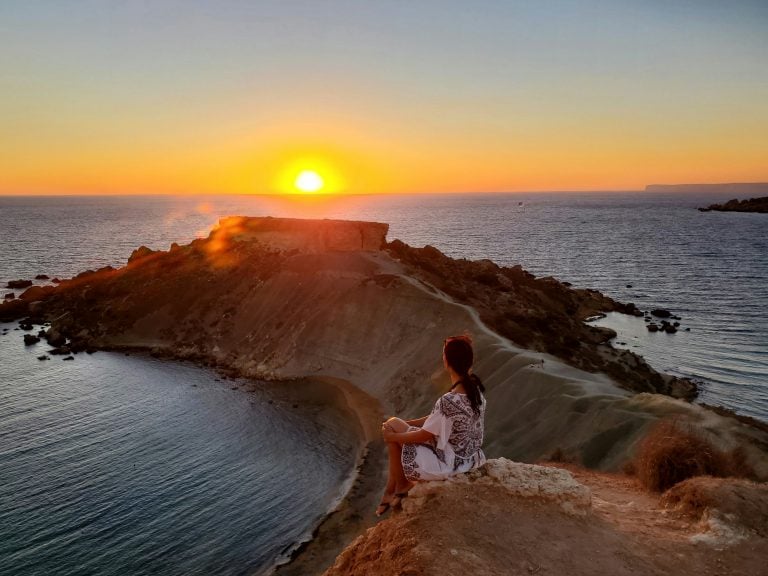How to get an EU/Maltese Passport as a South African Citizen?
Interested in obtaining a European Passport?
For South Africans, having a passport issued to you from any of the EU country entitles you to full European Union citizenship, allowing you to live, work and start a business in any EU member state.
Additionally, it provides visa-free travel to over 170 countries and access to high-quality healthcare and education. For South Africans looking to broaden their horizons and leverage the opportunities within the European Union, acquiring a European passport, particularly a Maltese one, can be a life-changing move. Malta is especially appealing due to its relatively straightforward routes to residency and citizenship, its delightful Mediterranean setting and its rich cultural landscape.
What we can do for you
We at Frank Salt Real Estate, in collaboration with our specialist immigration partners and advisors, can assist South African clients in securing Maltese residency through qualifying for specific residence permits through investment and in some cases this can also open the way to acquiring Maltese citizenship.
THE ADVANTAGES OF HAVING A MALTESE PASSPORT
Owning a Maltese passport provides the holder with numerous benefits such as:
- Freedom of movement
- Unrestricted travel within the 26 countries of the Schengen Area.
- Visa-free travel
- Visa-free access to over 180 countries globally.
- Employment opportunities
- Access to a broader job market with diverse career options across various industries in the EU.
- Education in the EU
- Access to world-class universities and research institutions with potential for lower tuition fees for EU citizens.
- Excellent healthcare access
- Benefit from high-quality healthcare systems in EU countries, often at reduced costs for EU citizens.
- Financial perks
- Lower tax burdens and attractive investment options.
- Quality of life
- High living standards with access to excellent public services and infrastructure.
- Cultural experience
- Exposure to diverse cultures, languages, and historical sites within the EU.
- Political stability
- The EU is generally known for its political stability and strong governance structures.
- Economic stability
- The Eurozone provides a stable economic environment with a strong currency.
- Property ownership
- Easier process and more options for buying property in EU countries.
- Business opportunities
- Facilitates doing business, setting up companies, or investing in EU countries.
- Safety and security
- Many EU countries are ranked highly for safety and security.
- Family reunification
- Easier to bring family members to live in the EU.
- Legal protection
- Strong legal rights and protections as an EU citizen.
- Retirement benefits
- Attractive destinations and benefits for retirement within the EU.
- Environmental quality
- Access to countries with high environmental standards and beautiful natural landscapes.
- International networking
- Opportunities for networking and collaborating with professionals from across Europe.
- Long-term security
- Living in the EU offers a sense of long-term security and stability, especially in times of uncertainty.

Routes for Citizenship
If an individual prefers to go the route of acquiring citizenship, it is important to note that if one chooses to not go the traditional route, this is can be an expensive, lengthy and stringent process that requires certain conditions are met as determined by the government of Malta. But ultimately it is absolutely worth it: for those lucky to have been awarded Maltese citizenship, the opportunities are indeed limitless.
We look at some salient point of the methods for acquiring a Maltese Passport:
THE TRADITIONAL ROUTE: NATURALISATION THROUGH HAVING RESIDENCY FOR 5 YEARS OR MORE
The most typical way for South Africans to obtain a Maltese passport is through naturalisation. This requires residency in Malta for a specific duration and that the individual meets certain criteria. These include:
- The residence period: Having legally resided in Malta continuously for no less than five years.
- Good character: Having a clean criminal record and abiding by Maltese laws.
- Sufficient financial resources: Demonstrating financial independence for oneself and any dependents.
- Integration: A basic understanding of the Maltese language and culture and this can only be achieved by doing officially recognised courses for which exams are required to be written.
- Employment or self-employment: Working in Malta or earning sufficient self-employed income.
MALTA CITIZENSHIP BY NATURALISATION FOR EXCEPTIONAL SERVICES BY DIRECT INVESTMENT
In November of 2020 Malta officially launched the latest outlines which allow what is referred to as third-country nationals (Such as South Africans) the opportunity to obtain Maltese and therefore EU Citizenship: the programme is officially known as the Malta Citizenship by Naturalisation for Exceptional Services by Direct Investment (NESDI) regime. This allows foreign nationals to first gain residency and then potentially citizenship through means of a making a significant investment. The investments needed are in brief:
- A contribution made directly to the government of Malta
- A property investment (whether by way of lease or purchase)
- A donation to a Maltese charitable non-governmental organisation of choice
MORE INFORMATION ABOUT WHAT THE DIRECT CONTRIBUTION TO GOVERNMENT CONSISTS OF:
- If a person chooses the standard route, this will require the main applicant and any adult dependants to hold Maltese residency status for a period of 36 months before applying for citizenship. A contribution of €600,000 for the Main Applicant and an additional €50,000 for each dependant is to be paid to the government; or
- An applicant may choose the expedited procedure, which will require the main applicant and any adult dependants to hold Maltese residency status for a period of 12 months before applying for citizenship. This is against a contribution of €750,000 for the main applicant and €50,000 for each additional dependant.
PROPERTY INVESTMENT:
Applicants must either purchase or rent a property, as part of the NESDI framework’s requirements. When purchasing a property, a qualifying property would need to have a at least a value of €700,000. If an applicant chooses to rent a qualifying property instead, the minimum annual rent is to be at least €16,000. The property needs to be adequate and suitable for the applicant and any dependants plus the title of the property or the lease would need to be held for a minimum period of five years from the date of issue of the certificate of Maltese citizenship. Additionally the applicant would need to provide proof of retention of the property through an Annual Compliance Form that is submitted yearly to the governmental agency that oversees the NESDI framework and this is required for five years after citizenship is obtained.
A DONATION TO A MALTESE CHARITABLE NON-GOVERNMENTAL ORGANISATION:
An applicant will be required to make a donation of at least €10,000 to a registered Maltese philanthropic, scientific, cultural, sport, animal welfare or artistic non-governmental organisation or society that is enrolled with the Commissioner for Voluntary Organisations.
For all information regarding this process above, make sure to visit https://franksalt.com.mt/malta-residence-programmes/malta-citizenship-by-direct-investment/

Other factors for South Africans to consider when thinking of applying for a Maltese passport:
- Malta offers a favourable and fast route to European citizenship and as a South African keep in mind that English is spoken by more than 80% of Maltese. It is one of the national languages along with Maltese, but learning basic Maltese is extremely helpful for social integration.
- One’s cultural adaptation is also important as understanding Maltese customs and traditions can enrich the experience of living in and doing business in Malta.
- The cost of living in Malta is generally higher than the living costs in South Africa, especially in popular and sought-after areas, although other expenses are cheaper such as medical and household insurance.
- When it comes to career prospects, investigate specific industries and qualifications to see if you are qualified to match Malta’s job market demands.
To conclude
Getting naturalisation as an investor is the quickest but most costly route to obtaining an EU passport. Depending on which country you choose, minimum investments can range from €250,000 to €690,000 plus. The traditional route to naturalisation is more time-consuming but far more affordable but obtaining a Maltese passport will open up a world of opportunities within the EU. Many South Africans have already embraced Malta’s lifestyle, culture and language, embarking on a rewarding journey of personal and professional fulfilment.
Since real estate forms part of the route to obtaining Maltese citizenship, we are best qualified to assist you in this regard. We are Malta’s oldest and biggest real estate group and have been around for more than 55 years. Make sure to look at all the options for residency at https://franksalt.com.mt/malta-residence-programmes/ and contact us today with any questions.
